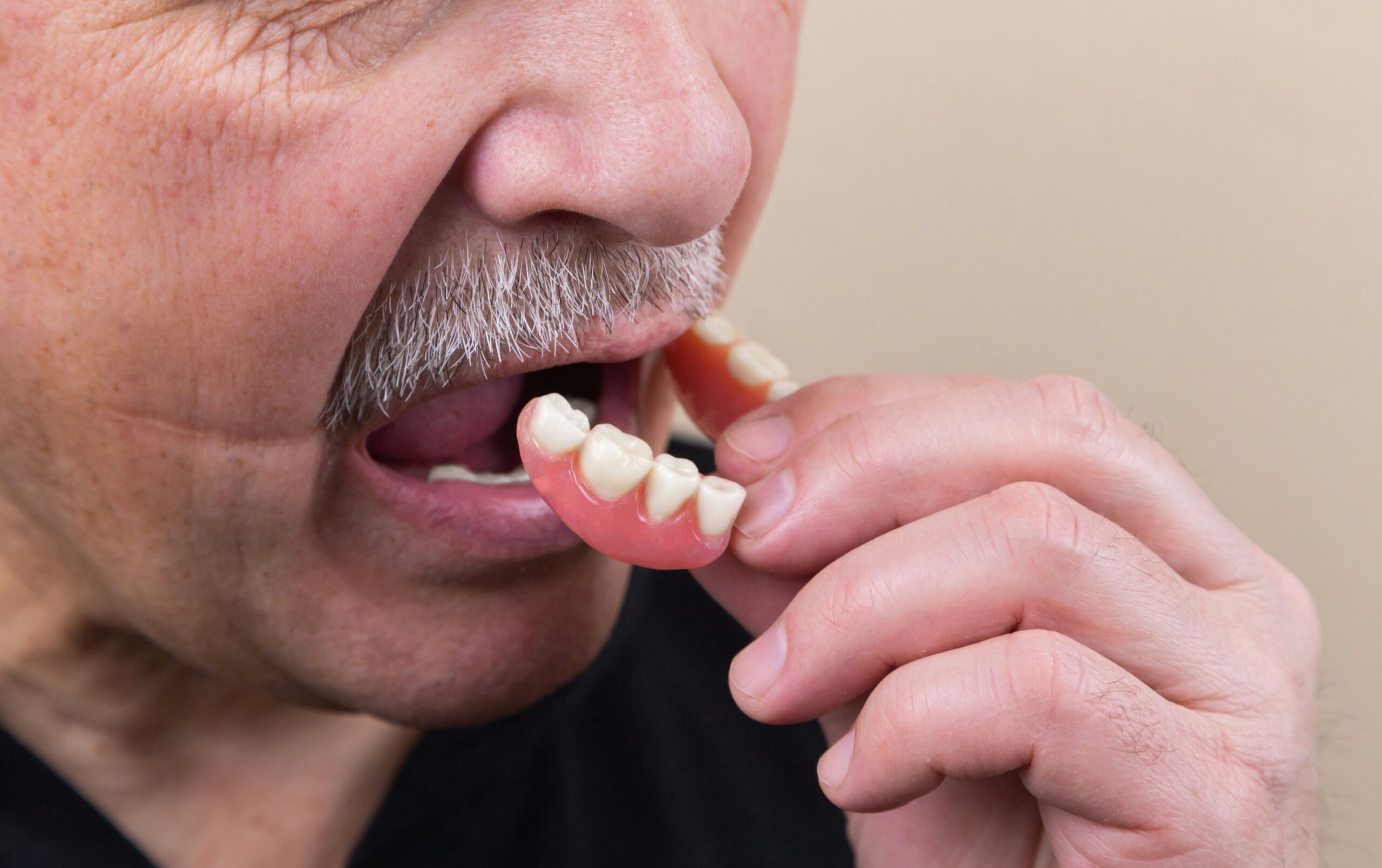For patients in Sandgate seeking dentures, options range from partial to implant-supported solutions. Dentures can be a life-changing solution for those with missing teeth. They restore functionality, improve appearance, and boost confidence.
But what are the different types of dentures available?
This article will guide you through the various options. We’ll explore full dentures, partial dentures, and implant-supported dentures.
We’ll also delve into the materials used in denture construction and their aesthetic implications.
Understanding the cost of dentures and insurance considerations is crucial. We’ll provide insights into these aspects as well.
By the end of this article, you’ll have a comprehensive understanding of dentures, helping you make an informed decision about your dental health.
Why Replace Missing Teeth?
Replacing missing teeth is not just about appearance. It’s essential for oral health and functionality. Each tooth supports the others, maintaining their proper position.
When teeth are missing, the neighbouring teeth can shift. This movement can lead to misalignment and bite issues. Chewing also becomes challenging without a full set of teeth.
Missing teeth can affect speech. Sounds are formed through the contact of teeth and tongue. Therefore, gaps can lead to slurred speech or difficulty pronouncing certain words.
Additionally, missing teeth can lead to bone loss in the jaw. Teeth support the jawbone, and without them, the bone can deteriorate over time.
Ultimately, dentures not only restore a complete smile but also contribute significantly to oral health and functionality. These factors make replacing missing teeth an important decision for anyone experiencing tooth loss.
Full Dentures Explained
Full dentures are a type of denture designed to replace all the teeth in either the upper or lower jaw. These prosthetics are essential when a person loses all their natural teeth in an arch. Full dentures can significantly improve both the appearance of the smile and the functionality of the mouth.
These dentures sit on top of the gums and are custom-made to fit each individual’s mouth. Dental impressions are used to ensure a snug fit. This personalised approach helps prevent slippage and maximises comfort.
Full dentures are typically crafted from acrylic resins. This material is both durable and aesthetically pleasing. It mimics the appearance of natural gums and teeth.
The design of full dentures ensures that they can be easily removed. This feature allows for proper cleaning and overnight soaking. Regular removal also helps in oral hygiene maintenance.
For those considering full dentures, understanding the different options is crucial. Both conventional and immediate full dentures serve unique purposes and meet various needs.
Conventional Full Dentures
Conventional full dentures are fitted after the gums have completely healed following tooth extraction. This process can take several months. The waiting period allows for precise measurements and a tailored fit.
These dentures offer a strong, stable fit. Because they are made after healing, they rest comfortably on the gums and jawbone. This tailored fit minimizes any future adjustments that might be necessary.
Immediate Full Dentures
Immediate full dentures, as the name suggests, are placed right after teeth extraction. This option eliminates the waiting period, ensuring individuals are never without teeth.
These dentures are adjusted after the gums have fully healed. Jawbone and gum changes occur post-extraction, requiring fitting modifications. Immediate full dentures provide an aesthetic advantage by maintaining the appearance immediately following tooth removal. However, they demand more frequent adjustments compared to conventional dentures.
Partial Dentures and Their Role
Partial dentures are a solution for individuals missing some, but not all, of their teeth. They offer a flexible option for restoring both function and appearance. Unlike full dentures, partial dentures fill the spaces between remaining natural teeth.
These dentures typically consist of replacement teeth attached to a gum-coloured base. This design ensures a natural appearance and a comfortable fit. Partial dentures not only improve aesthetics but also prevent remaining teeth from shifting.
The process of creating partial dentures involves precise dental impressions. These help ensure the new dentures fit comfortably alongside natural teeth. The design and materials used are chosen to mimic the wearer’s natural teeth as closely as possible.
Partial dentures can be attached to natural teeth using clasps or precision attachments. This attachment ensures stability when eating and speaking. The choice between clasps or precision attachments depends on individual needs and preferences.
Choosing the right type of partial denture is vital for overall dental health. An informed decision enhances comfort and functionality while also considering aesthetics. Both metal framework and precision attachment partial dentures provide distinct benefits based on individual requirements.
Metal Framework Partial Dentures
Metal framework partial dentures are known for their durability and strength. They consist of a thin metal base, providing a strong foundation. The metal framework rests discreetly, ensuring a natural look while providing excellent support.
These dentures use metal clasps that attach to existing teeth. This system ensures the partial denture remains firmly in place during daily use. The use of metal adds strength without compromising comfort or appearance.
Precision Attachment Partial Dentures
Precision attachment partial dentures differ by using special connectors for attachment. These are much more discreet compared to metal clasps. The attachments fit into prepared spaces, offering a seamless appearance.
They provide superior aesthetics due to the absence of visible metal parts. This style of denture requires more precision in the dental work. Customisation allows for a tailored fit that enhances both comfort and function.
Implant-Supported Dentures for Stability
Implant-supported dentures are an excellent choice for added stability and comfort. Unlike traditional dentures, they are anchored directly to the jawbone. This anchorage provides a firm hold, reducing slippage during everyday activities.
The process involves placing dental implants surgically into the jaw. These implants act as artificial roots, offering a solid base. The dentures attach securely, mimicking the fit and feel of natural teeth.
This type of denture greatly improves chewing ability. It can also enhance speech clarity due to its stable nature. Many find implant-supported dentures to be more comfortable and confidence-boosting.
Implant-supported options also play a role in preserving jawbone health. Because the implants stimulate the bone, they help prevent bone loss. This feature contributes to maintaining facial structure over time, a concern with traditional dentures.
Removable vs. Fixed Options
Implant-supported dentures come in both removable and fixed forms. Removable options allow easy cleaning and maintenance. Users can take them out, just like traditional dentures, but with increased stability.
On the other hand, fixed dentures are permanently attached to implants. They provide a closer experience to having natural teeth. While they are more secure, they require professional assistance for removal.
Denture Materials and Aesthetics
Choosing the right denture material impacts both appearance and function. Common materials include acrylic resin, porcelain, and metal alloys. Each material offers unique benefits and aesthetic possibilities.
Acrylic resin is often chosen for its lightweight nature and affordability. It can be easily shaped and matched to natural gum colour. Porcelain, while heavier, offers superior durability and a natural look.
Metal alloys, typically used in partial dentures, provide strength and support. They offer a more secure fit for those with remaining natural teeth. The aesthetic outcome depends on the skilful blending of these materials.
The selection of materials should consider both functional needs and personal preferences. Factors such as durability, comfort, and natural appearance should guide the choice. Consulting with a dental professional can help in selecting the best option for one’s lifestyle and health.
The Cost of Dentures and Insurance Considerations
The cost of dentures can vary widely based on several factors. The type of denture—whether full, partial, or implant-supported—greatly influences the price. Material choice, customisation, and the complexity of the procedure are also important considerations.
Full dentures typically fall within a moderate price range. Partial dentures can be less expensive, especially if they use simpler materials. Implant-supported dentures tend to be the most costly due to the surgical component involved.
When considering the cost, it’s crucial to factor in potential insurance coverage. Dental insurance plans may cover part of the expense, particularly for basic dentures. However, more advanced options might require additional out-of-pocket payment.
Here’s a brief list highlighting key cost considerations:
- Type of Denture: Full, partial, or implant-supported.
- Material and Customization: Affects durability and comfort.
- Insurance Coverage: Varies by plan; check specifics.
- Additional Procedures: Might be required for implants.
Regular maintenance, such as relining or adjusting dentures, may incur extra costs. Discussing plans with your dental provider can provide clarity and aid in financial planning. Understanding potential costs upfront helps in making an informed decision that balances budget and quality.
Caring for Your Dentures
Proper care is essential to ensure the longevity of your dentures. Regular maintenance not only preserves the material but also ensures comfort and hygiene. Consistent care can prevent stains and wear over time.
Daily cleaning routines are vital for dentures. Use a soft-bristled brush and a non-abrasive denture cleaner. Avoid regular toothpaste as it can be too harsh and cause damage. A dedicated denture cleaning brush helps reach all surfaces effectively.
A good nighttime routine is also important. Soak dentures in a suitable solution overnight to maintain their shape and prevent drying out. This process also helps in eliminating any bacteria buildup.
Here’s a list of denture care tips:
- Rinse after eating to remove food particles.
- Brush daily with a denture brush.
- Soak in a denture cleanser overnight.
- Handle with care to prevent dropping.
- Avoid hot water which may warp them.
Following these steps ensures that dentures remain clean and functional. Regular check-ups with your dentist are also important to address any fit or comfort issues promptly. Prioritizing these practices aids in keeping your dentures in optimal condition.
Adjusting to Life with Dentures
Adapting to new dentures can take time. Initially, you might experience slight discomfort or feel bulky in your mouth. This is normal as your oral tissues adjust to the change.
Practice is vital in getting used to them. Regularly talking and eating with dentures will hasten your adjustment. Start with soft foods and practice speaking in private to ease your transition.
Patience plays a crucial role during this period. It’s vital to maintain open communication with your dental professional. They can provide support and make necessary adjustments to enhance comfort.
Eating and Speaking with Dentures
Eating with dentures requires a bit of practice. Begin with softer foods and gradually introduce more variety. Chewing slowly and evenly using both sides of your mouth helps maintain stability.
Speaking might seem challenging at first. Engage in simple exercises like reading aloud to improve clarity. With time and patience, your confidence in speaking will grow.
Denture Maintenance and Hygiene
Maintaining denture hygiene is crucial for oral health. It prevents odours and prolongs the lifespan of the dentures. A consistent cleaning routine is key.
Rinse your dentures after meals to remove debris. Regular soaking and brushing keep them free of stains and plaque. These steps ensure that your dentures stay fresh and functional for longer durations.
Making the Right Choice
Choosing the right dentures requires careful consideration. Each type offers unique benefits suited to different needs and lifestyles. Consulting with a dental professional is crucial in making informed decisions.
Factors such as comfort, aesthetics, and cost play vital roles. It’s essential to weigh these aspects alongside your personal preferences. With the right guidance, you can find dentures that improve both functionality and quality of life, ensuring a confident and comfortable smile.








